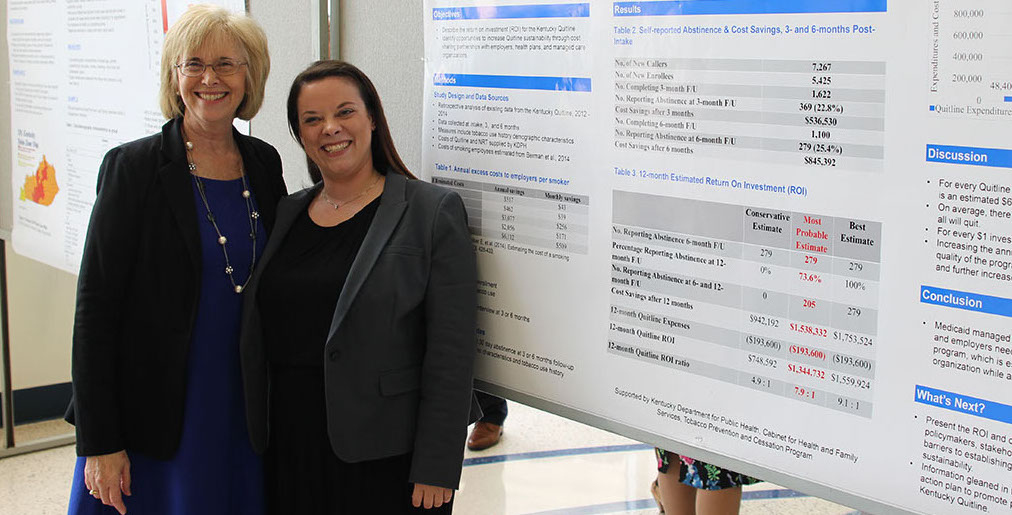Posted: April 26, 2016

After working at the bedside in critical care, emergency medicine and as a rapid response nurse for seven years, PhD student Shannon Parsley, RN, BSN, CEN, felt in her gut that something wasn’t quite right—her passion aligned more with improving patient outcomes and the undeniable injustices she frequently witnessed in the health care system.
“The injustices I saw were centered on corporate and administrative decision-making such as budgeting, staffing and the provision of resources and support, and that led to poor patient outcomes, nursing incivility and moral distress,” says Parsley.
Parsley, who had previously dropped out of high school and gave birth when she was 19, earned her ADN in 2007 to financially support her daughter. She excelled in the field and earned the national Certified Emergency Nurse certification and the Daisy Award for Extraordinary Nurses.
At the bedside, Parsley also saw complications in handling end of life decisions as well as monetary issues; for example, insurance coverage often weighed more in decision-making than quality patient care. “That goes against the very foundation that nurses are to treat all patients equally,” she says.
On a more personal level, Parsley’s grandmother was admitted to the organization of hospitals where she had worked, and what she saw was unsettling: the lack of response to her grandmother’s safety as well as a lack of concern, competence and compassion. Driven to find a solution, Parsley wanted to do more.
Parsley entered the RN-BSN program at the UK College of Nursing in 2009, but eventually withdrew for personal reasons. She returned in 2014, but this time to pursue political science. “I returned to school convinced that the best way to address the injustices and to ‘fix’ a broken system was by means of the justice system and by the pursuit of a law degree,” says Parsley. “But I was advised by multiple political science professors I could better address these issues by completing my BSN.”
Parsley returned to the College of Nursing in spring 2015 to take three final courses that would complete her undergraduate degree. Instead of completing clinicals for her final Synthesis course, assistant professor and director of the RN-BSN program, Jessica Wilson, PhD, APRN, placed Parsley with Professor Ellen Hahn, PhD, RN, FAAN, and her BREATHE (Bridging Research Efforts and Advocacy Toward Healthy Environments) team to gain insight on policy advocacy and change.
“The final synthesis course placement introduced me to the broad field of policy and research. By virtue of being placed with a research team, I was introduced to health care ethics and realized this was how I could best address the injustices I had been exposed to during my time at the bedside.”
Parsley graduated from the RN-BSN program in August 2015. Now, she is on her way to complete a PhD in nursing with a focus on health policy and plans to apply for a post-doctoral fellowship in the field of bioethics. With continued advising from Dr. Hahn, she continues to work for BREATHE as a Research Assistant (RA).
Her placement with BREATHE could not be more fitting: she was awarded a 2016 Truth Initiative Scholarship intended to increase the diversity of community advocates and researchers participating in the Annual Tobacco Documents Workshop. The workshop is presented by the Center for Tobacco Control Research & Education (CTCRE) at the University of California, San Francisco on May 5-6, 2016.
“This unique experience will be invaluable to my future research and advocacy for ethical public health and healthcare policies, including tobacco-free policy,” Parsley says. “I dream of being on the cutting edge of ethical research and policy development and helping to lead the movement toward a more ethical health care system by promoting and assimilating an ethical approach to health care decision making,”
UCSF is home to the Truth Tobacco Industry Documents Library and British American Tobacco Documents Archive. These online archives contain over 14 million documents related to advertising, manufacturing, marketing, sales, and scientific research on tobacco products. The workshop will provide:
- An introduction to tobacco industry documents databases;
- A hands-on experience searching industry documents;
- Examples of how the documents can be used to promote tobacco-free communities; and
- Opportunities to network and brainstorm with top documents researchers and advocates.